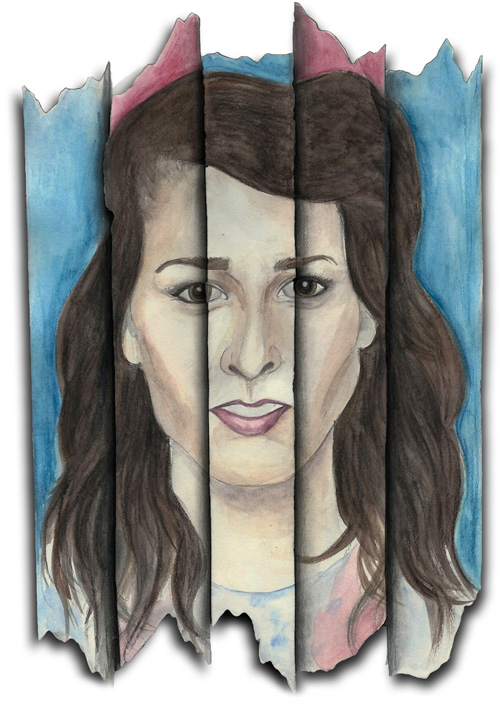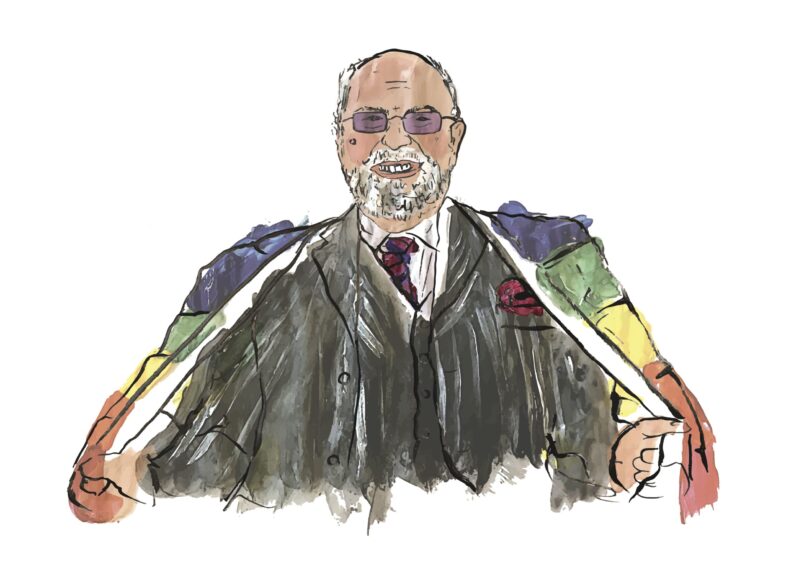Trinity’s University Philosophical Society (the Phil) has seen many prominent figures pass through its ranks, including figures such as Mary Robinson, David Norris, Samuel Beckett and Oscar Wilde. The University Times spoke to five notable Phil alumni to try to understand what it is that makes Trinity debating, and the Phil, so special. Was it the enthusiastic committee members in maroon t-shirts running around Front Square during freshers’ week that got these people involved in the Phil?
Graduating from Trinity in 1996, the current Minister for Finance and President of the Eurogroup Paschal Donohoe is a past secretary of the Phil. He detailed how his fate became “ever intertwined with that of the Phil” after winning the silver medal oratory competition during freshers’ week. “I can still remember coming home that night with a silver medal in my pocket. For that reason there was never any doubt which debating society I would participate in.”
In sharp contrast, Senator David Norris – now an honorary patron of both the Phil and the College Historical Society (the Hist) – chuckles at what he jokes might be a University Times exclusive, as he reveals how he “had been kicked out of both” debating societies by the end of the first term. In the Phil he had refused to pay a small fine. What for? Who knows, but this becomes unsurprising once Norris recalls debates where he refused to speak anything but Irish and played various practical jokes to the hilarity of most.
For past president Rosalind O’Sullivan, a parliamentary researcher at the Oireachtas and former political advisor at the UN, it was more about the community. Recalling a freshers’ week event in Dragon, she says: “I remember being in the smoking area going, ‘ah yeah I think it’s going to be the Phil.’”

As keen readers will know, The University Times’ annual “Trinity Twenty” list invariably features some debating figures from the Phil. Daire Hickey, the co-founder of mega-successful Web Summit and CEO of consultancy firm 150 Bond, had his sights set higher than becoming a Big Name on Campus (BNOC) or making it onto the Trinity Twenty, even though he admits he was “kind of ambitious and wanted to be president”.
Hickey believes it paid off too: “For me it probably led to my current career and everything that I do.” Hickey’s session as president included an extraordinary lineup of guest speakers including not only Joanna Lumley and David Hasslehoff but also the late Ruth Bader Ginsburg, Oliver Stone and Al Pacino. During his tenure, he mentions how the debating club liaised and worked “closely with the folks at RTÉ on Ryan Tubridy’s show and elsewhere, telling them the kind of people we were bringing in”.
Despite appearances, the Phil isn’t all “phun” and games with A-list celebs. O’Sullivan wanted to become president of the Phil to further the society’s community of student volunteers. “I felt like I found my tribe a little bit. I felt like I had seen so much go down in the GMB [Graduates Memorial Building] and I knew the nuts and bolts of things.” She remains astounded by the responsibility that came with the role: “The budget lines that I had authority to sign a check over in the Phil are so much bigger than anything I’ve had authority over in my actual career.”
“I think it is quite difficult to explain to people”, continues O’Sullivan. “There’s this amazing system in Trinity where 20, 21 year olds are responsible for accounts, are responsible for going out and negotiating sponsors, get to wine and dine guests, get to manage events and manage a team. It’s hard to convey that it wasn’t a bit of casual student volunteering at times.”
The past members and presidents tell me that it’s not as easy as simply getting elected and reaping the benefits. Donohoe paints a 90s-flavoured picture of the dusty room nestled under the very roof of the GMB which he “will always remember”, having “spent an entire summer there using a really old apple computer and writing out letters to get guests to come along to our debates.”

Past president Ludivine Rebet, a COP26 coordinator at Chatham House, says she didn’t fully realise the level of responsibility she held as president at the time: “We had Madeline Albright one day and Ice Cube and Kevin Hart the next.” She also echoes O’Sullivan in reminding me that the high-fly debating and hosting of dignitaries and A-listers in a gothic mansion in the middle of town is “a voluntary activity and it’s only worthwhile if you’re enjoying it”.
The role also came with social pressures. O’Sullivan describes how she “felt pressure to perform” after “the Phil had a very impressive run of a great couple of years with really big guests, increasing budgets and things getting bigger and better”. Compare that with having to entertain someone like Clinton’s former chief of staff, a memory Hickey even now in his New York City apartment recalls as “intimidating”.
From Donohoe’s perspective, the challenge was “each week, trying to make sure the debates were well attended and the following week trying to make sure they were even better attended”. According to Norris, the days of big crowds in the GMB are long gone. “Even though the College population is about eight times what it was when I was there, you don’t get the big crowds there at the meetings of the major societies at all.”
In terms of what debates are had, O’Sullivan’s pragmatic stance while president was simply that “the Phil doesn’t have an opinion. It’s our job to put on entertaining and useful events that students want to go to. So, what students are interested in seeing, becomes the discourse we should be having.” Regardless, any changes in how the Phil frames contemporary discourse is certainly an improvement on, as Norris recalls, women having to be outside the College by 6pm and some attending debates in makeshift drag.
It does teach you lots of things you can go onto potentially use for later life
As abstract as it all might sound, the experiences these alumni had in the Phil had concrete impacts on their lives. Rebet landed a summer internship with Apple in California after hosting Tim Cook at the society and credits her time as president with having granted her the event co-ordination skills and logistical expertise she now enjoys.
Equally rewarding is the debating aspect. This is obviously “very useful if you want to become a barrister” according to Norris, who describes himself as “the lawyer’s friend”. What for, I ask? For taking “actions at the drop of a hat”, he laughs.
At the same time, my promise to Norris that there won’t be anything defamatory in this article results in him teasing: “I’d rather like it if you did, then I could take action against The University Times, give you a bit of an upgrade in your legal training!”
For all the benefits of being a member of these two societies, accusations of elitism and exclusion loom over them these days. Rebet says she was always conscious “that the tradition and the elitism will make some people feel excluded”, and so tried “to figure out how the society could operate at the high standard that it does but not let [tradition] dominate the social element of the society”.
But she insists members aren’t actively excluding aspiring debaters, or seeking to intimidate any would-be members. Rather, she believes “it’s the history and the tradition and the big building and the black tie”. So perhaps the pride of the Hist and the Phil being among “the oldest debating societies in the world” as Norris remarks, is balanced by these modern concerns.
Donohoe believes the opportunities afforded to him during his time in the GMB helped him in his professional life. “Being an active member of a society in any college is an intrinsically good thing in itself. It is both an end and a means”, says the minister, from behind his desk at the Oireachtas. “A beneficial consequence of it is that it does teach you lots of things you can go onto potentially use for later life. My early experiences of trying to organise events, participating in committee meetings [and] getting on well with people I was working with, had a huge effect on the rest of my life.”
Correction: February 10th 2022
An earlier version of this article misspelled the surname of the chair of Hillary Clinton’s 2016 presidential campaign. He is John Podesta.







